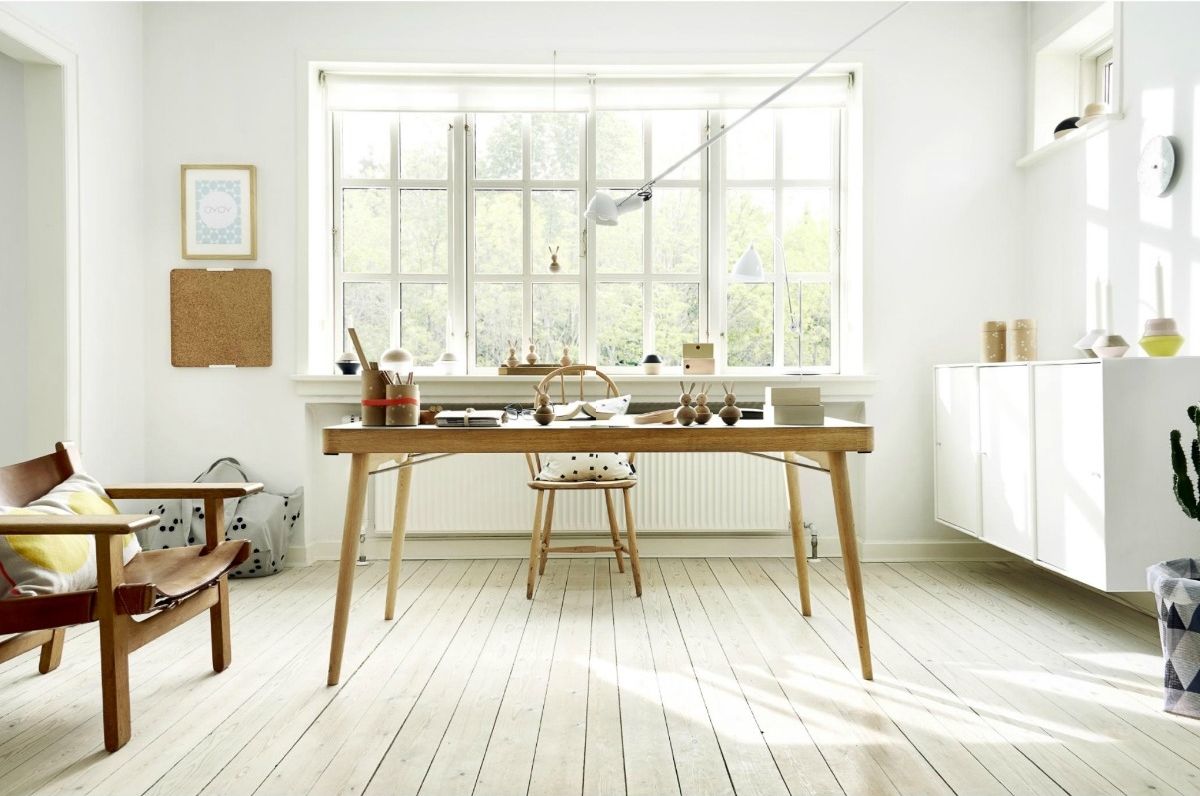Minimalist living has emerged as a transformative trend across the Middle East, influencing various facets of daily life, from interior design to consumer behavior and community engagement. This movement emphasizes simplicity, mindfulness, and intentionality, resonating with individuals seeking to declutter their lives and focus on what truly matters.
1. Redefining Interior Spaces
In cities like Dubai and Abu Dhabi, homes and offices are embracing minimalist designs characterized by clean lines, neutral colors, and open spaces. This approach not only enhances aesthetic appeal but also promotes a sense of tranquility and focus. For instance, comedian Mohanad AlHattab’s Dubai villa showcases a harmonious blend of boldness and restraint, featuring a wood-paneled hallway and thoughtfully chosen color accents. The design emphasizes comfort and visual engagement, aligning with minimalist principles.
2. Influencing Consumer Behavior
The minimalist movement extends beyond design, influencing consumer preferences towards quality over quantity. Shoppers are increasingly drawn to products that offer functionality and timeless appeal, favoring items that serve multiple purposes and stand the test of time. This shift encourages brands to innovate, focusing on essential features and sustainable materials to meet the evolving demands of minimalist consumers. Platforms like The Luxury Closet have observed a growing trend of residents selling pre-owned luxury items, reflecting a conscious effort to declutter and embrace minimalism.
3. Impact on Hospitality and Tourism

Hotels and resorts in the Middle East are adopting minimalist aesthetics to provide guests with serene and uncluttered environments. This design philosophy enhances the overall guest experience, promoting relaxation and mindfulness. Establishments are incorporating open spaces, natural materials, and subdued color palettes to create tranquil retreats amidst urban settings, aligning with the global appeal of minimalist luxury. Notable examples include Form Hotel Dubai and Al Faya Lodge, both exemplifying minimalist design principles.
4. Promoting Sustainable Living
Minimalism in the Middle East is closely linked to sustainability, encouraging reduced consumption and mindful resource use. This lifestyle advocates for owning fewer, but more durable and ethically produced items, contributing to environmental conservation efforts. Communities are embracing practices such as decluttering and prioritizing essentials, fostering a culture that values sustainability and environmental responsibility. The rise of community living developments, such as The Sustainable City in Dubai, reflects this shift towards eco-friendly and minimalist lifestyles.
5. Shifting Cultural Narratives
The rise of minimalist living challenges traditional notions of success and wealth, promoting values of contentment and mindfulness. This cultural shift encourages individuals to find fulfillment beyond material possessions, focusing on experiences and personal growth. For example, influencer Shahd Batal has embraced a more intentional and mindful approach to her online presence, infusing her content with meditative and culturally resonant themes. Her journey reflects a broader trend of seeking authenticity and purpose in the digital realm.
6. Educational and Community Initiatives
Workshops, seminars, and community events are being organized to educate the public about the benefits of minimalist living. These initiatives provide platforms for individuals to learn about decluttering, mindful consumption, and sustainable practices. By fostering community engagement, these programs aim to cultivate a collective shift towards simplicity and intentional living, reinforcing the principles of minimalism in everyday life. Social media groups and forums, such as the ‘Minimalism UAE’ Facebook group, have also emerged, offering support and resources for those interested in adopting a minimalist lifestyle.
7. Embracing Digital Minimalism

In the digital age, many individuals in the Middle East are adopting digital minimalism, seeking to reduce screen time and curate their online presence. This practice involves decluttering digital devices, limiting social media use, and focusing on meaningful online interactions. The tech-shy home trend further complements this movement, as individuals seek to create living spaces that are havens from the relentless pace of modern technology. Designers are responding by creating homes where technology is out of sight and out of mind, promoting a simpler and more relaxed living environment. AD Middle East
Conclusion: Embracing a Simplified Future
The adoption of minimalist living in the Middle East signifies a profound transformation in societal values and lifestyle choices. By embracing simplicity, functionality, and sustainability, individuals and communities are redefining modern living, creating spaces and lives that are both meaningful and fulfilling. As this trend continues to evolve, it holds the potential to reshape cultural norms and promote a more conscious and intentional way of life across the region.
Saudi Arabia’s Surprising New Ally: The Taliban’s Role in Vision 2030



